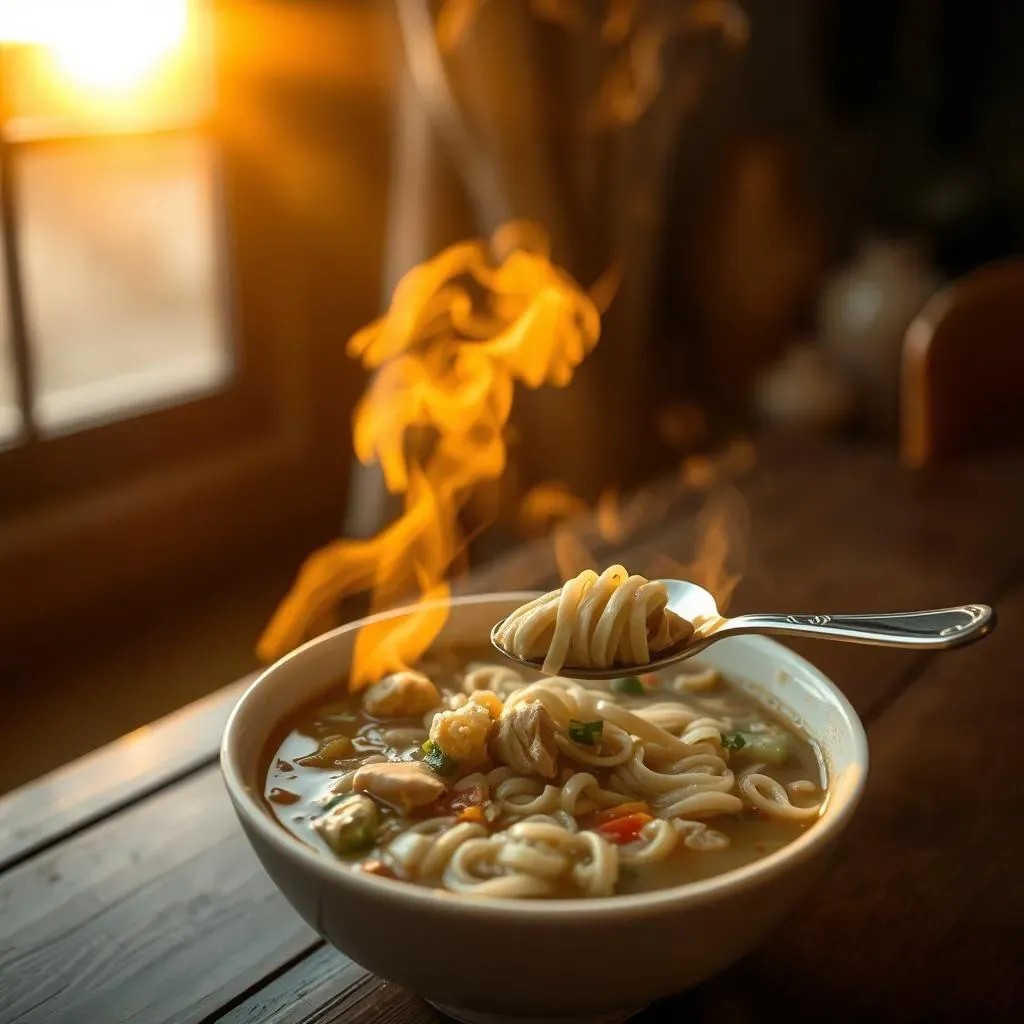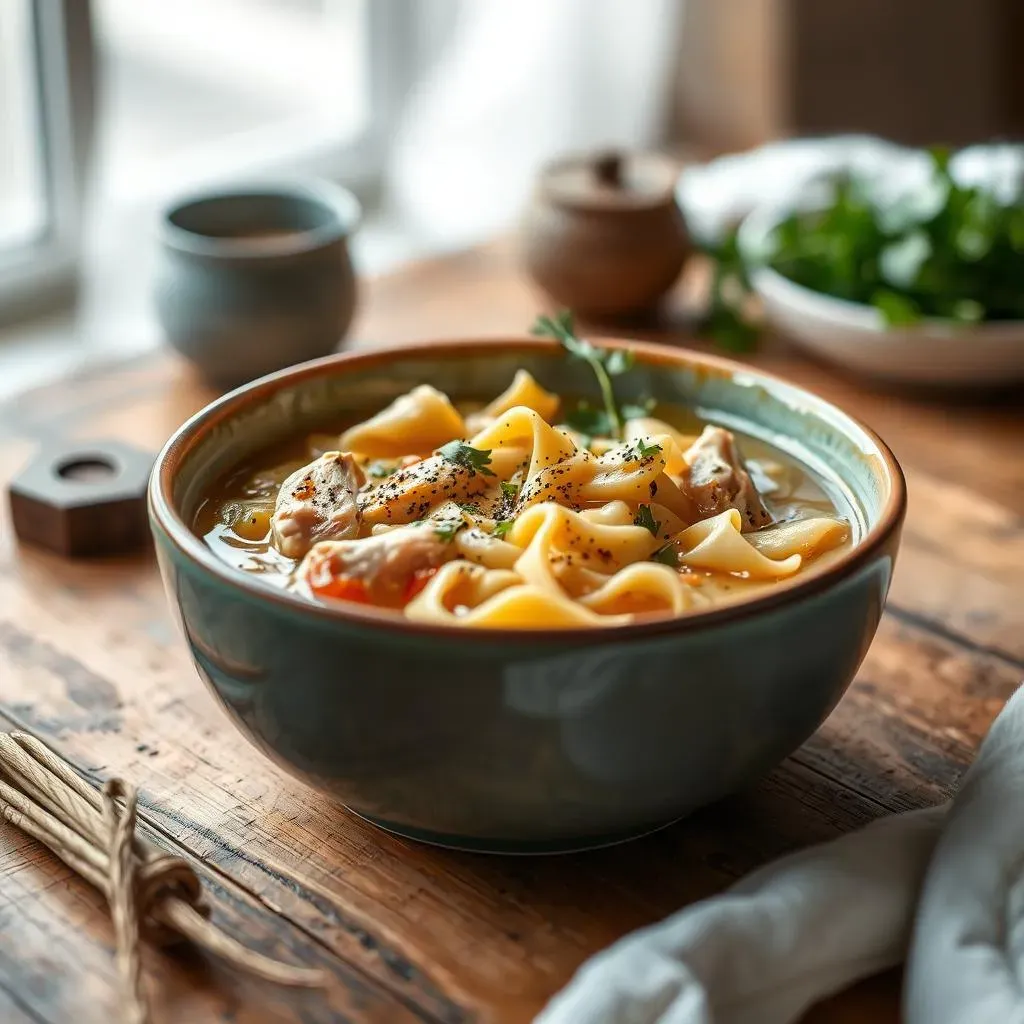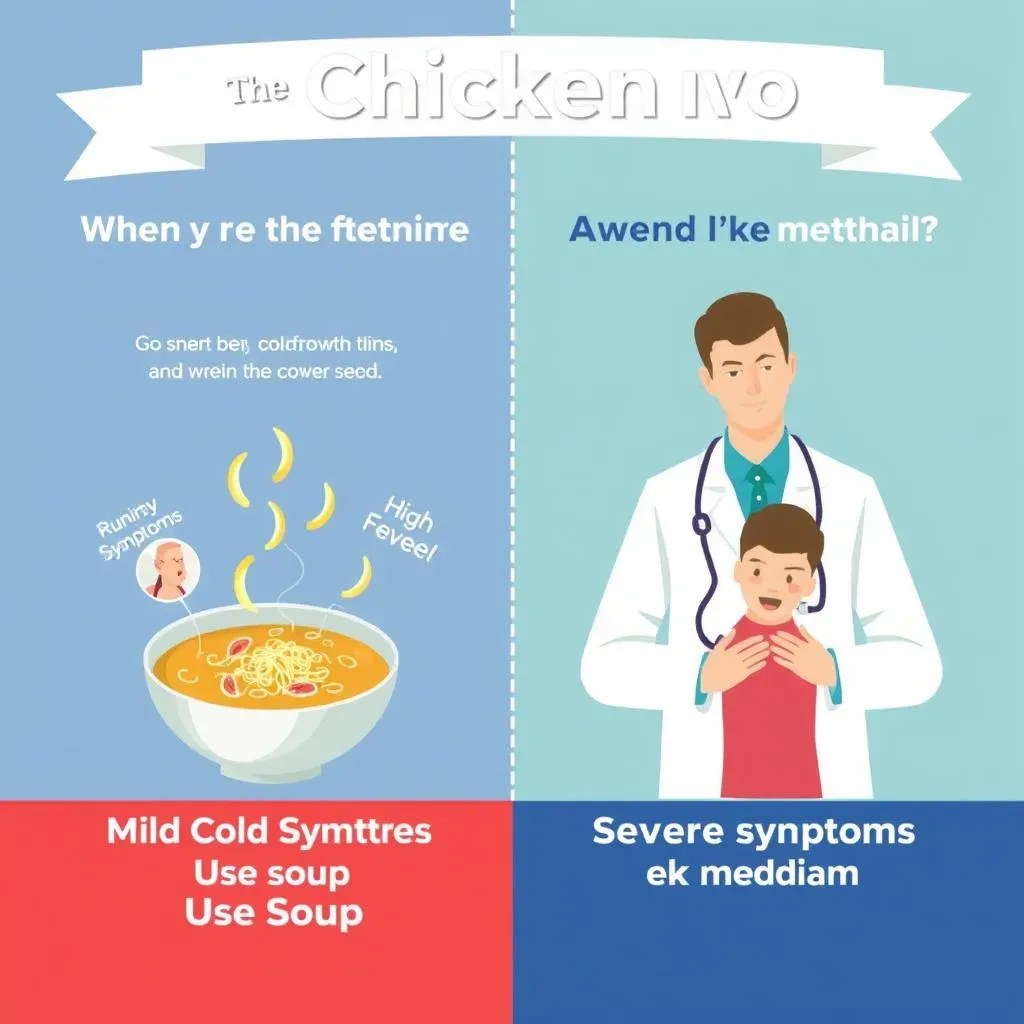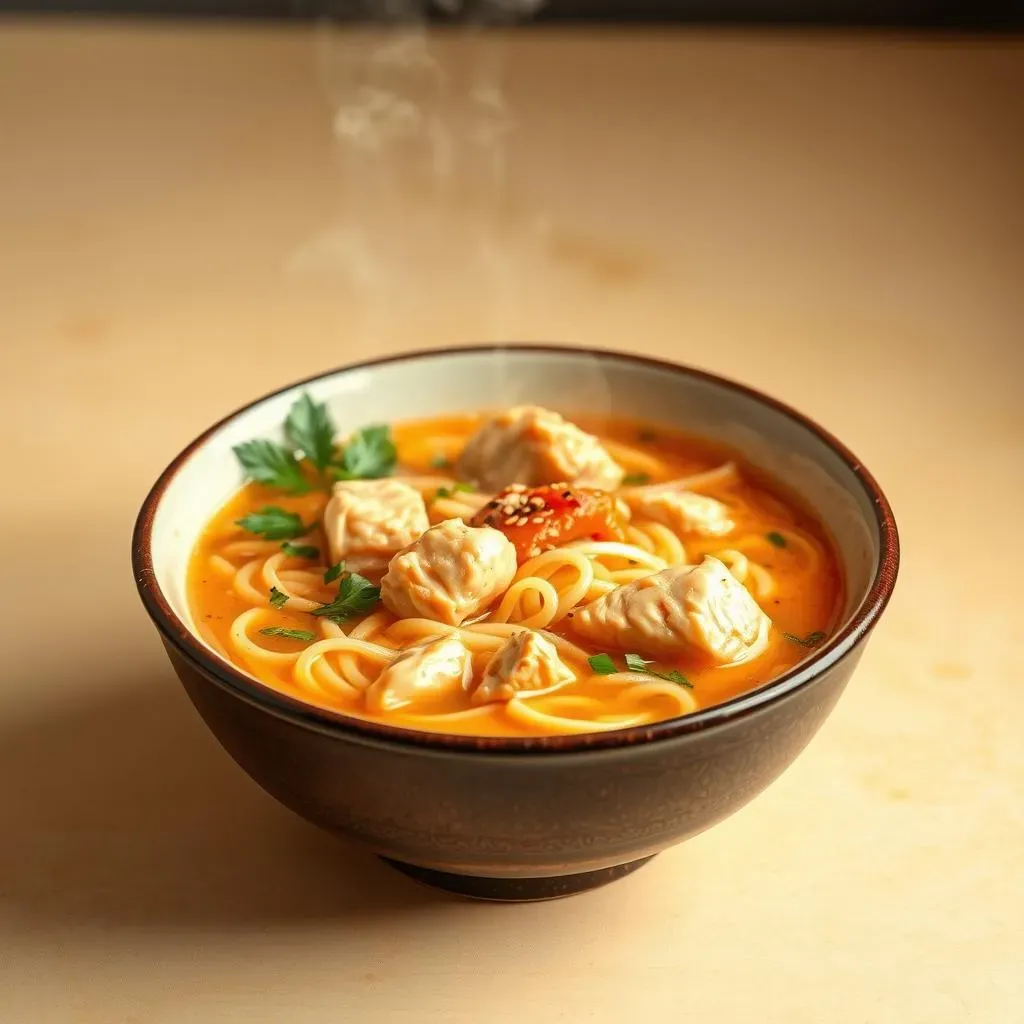Table of Contents
When the sniffles hit and your body feels like a deflated balloon, what's the first thing that comes to mind? For many, it's a steaming bowl of chicken noodle soup. It’s a classic comfort food, passed down through generations, but does it actually help when you're battling a cold or flu? The question "is chicken noodle soup good for flu recovery" isn't just about warm fuzzies; it’s about understanding the science behind this age-old remedy. We’re going to explore the real benefits of this soothing soup, and also look at when it's a good idea and when you might need something more. This isn't just about grandma's cure-all; we'll break down what makes chicken noodle soup helpful and what it can't do. So, grab a spoon, settle in, and let’s get to the bottom of this brothy mystery.
The Comforting Truth: How Chicken Noodle Soup Helps During a Cold

The Comforting Truth: How Chicken Noodle Soup Helps During a Cold
The Warmth Factor
Okay, so why do we all crave chicken noodle soup when we’re feeling under the weather? It's not just nostalgia; the warmth of the broth actually does something. Think of it like a gentle, internal hug. That heat helps to loosen up all the gunk in your sinuses, making it easier to breathe. It’s like a mini-steam treatment, right in your bowl. This is why you feel a bit clearer after a few sips, it’s not magic, it’s just good old-fashioned thermodynamics at work.
Also, when you're sick, your body is working overtime, and it's often hard to eat. The light, liquidy nature of the soup makes it easy to get down, even if you don't feel like chewing a lot. It’s gentle on your stomach which might be a bit sensitive. It’s like giving your body a warm, easy-to-digest fuel, without adding any extra stress.
Hydration Hero
Let’s talk about hydration; it's super important when you’re sick. A fever, congestion, and all that other fun stuff can dehydrate you, and chicken noodle soup is basically a delicious way to get fluids back in your system. The broth is mostly water, and that water is crucial for helping your body fight off whatever is making you feel bad. It helps keep your mucus thin (I know, gross, but important) so you can cough it up and get it out of your system. So, chicken noodle soup isn’t just comfort; it’s a practical tool in your battle against the bug.
The Power of Ingredients
Don't forget about the ingredients, each playing its little part. The chicken provides some protein, which your body uses to repair itself. The noodles? They’re a source of carbs for some much-needed energy. And the veggies? They throw in some vitamins and minerals, which are important for your immune system. It’s like a mini multivitamin in a bowl, and it’s way more fun to eat than a pill. The combination of all these things makes chicken noodle soup more than just warm water, it’s a little powerhouse of goodness when you’re not feeling your best.
Ingredient | Benefit |
|---|---|
Warm Broth | Loosens congestion, provides hydration |
Chicken | Provides protein for repair |
Noodles | Offers carbohydrates for energy |
Vegetables | Adds vitamins and minerals |
Chicken Noodle Soup: Benefits and Limitations for Flu Recovery

Chicken Noodle Soup: Benefits and Limitations for Flu Recovery
Not a Cure-All
Okay, so we’ve talked about the good stuff, but let's keep it real. Chicken noodle soup is not a magic potion that’ll make your cold vanish into thin air. It's more like a supportive friend, there to help you feel a bit better while your body does the heavy lifting of actually fighting off the virus. It won’t kill the virus and it won’t stop you from getting sick again. Think of it as a comfort measure, not a cure. It's like putting a band-aid on a scrape; it helps, but it doesn't heal the wound itself. You still need rest, maybe some medicine, and a little bit of patience to get back to your old self.
Also, let’s talk about salt. Many pre-made soups can be high in sodium, which isn’t great, especially if you're watching your salt intake. It can also dehydrate you which is the opposite of what we want when we are sick. It's like trying to put out a fire with gasoline. It is important to read the labels or if you are making it from scratch, be mindful of how much salt you are adding.
When to Be Cautious
Now, while chicken noodle soup is generally safe, there are a few things to keep in mind. If you have a kiddo who has some health issues like kidney problems or is on a low sodium diet, you should be extra careful about how much soup they are eating. Too much salt can cause problems. Also, if you are using a canned soup, it might have a lot of preservatives that are not that good for you. So, always check the label or make it yourself at home.
Also, chicken noodle soup should not be the only thing you are eating when you are sick. You need to make sure you are getting enough fluids, fruits, and vegetables. It is important to have a balanced diet. It's like trying to build a house with only one type of brick; you need a variety of materials to make it strong and sturdy. Your body needs a variety of nutrients to get better and stay healthy, so don't rely on just one thing.
When to Choose Soup and When to Seek Medical Advice for Flu

When to Choose Soup and When to Seek Medical Advice for Flu
Soup's Role in Recovery
So, when is chicken noodle soup your best buddy? It’s great when you’re feeling a bit run-down, like when your nose is stuffy, you have a mild cough, or just feel achy. It’s the perfect choice for those early days of a cold, when you just need some comfort and easy-to-digest nourishment. Think of it as the equivalent of a warm blanket and a good book for your insides. It's there to provide gentle support, keep you hydrated, and maybe even make you feel a little bit more human when you’re feeling like a zombie. This is the time to embrace the tradition, enjoy the warmth, and let it do its thing.
But, here’s the deal, if your symptoms are getting worse, or you’re not seeing any improvement after a few days, it’s time to call in the big guns. Chicken noodle soup is fantastic for making you feel better, but it’s not going to fight off serious illnesses. It is like trying to fix a car engine with a wrench, it might help a little but sometimes you need a mechanic. So, keep an eye on your symptoms and when in doubt, it is better to check with a doctor.
- Good for: Mild cold symptoms, stuffy nose, mild cough, general aches
- Not a Substitute for: Serious illness, worsening symptoms, no improvement after a few days
When to Call a Doctor
Now, let's be clear about when chicken noodle soup should take a back seat. If you have a high fever, persistent cough, trouble breathing, or severe body aches, you need to see a doctor. These are signs that your body is dealing with something that soup alone can’t handle. It's like trying to use a band-aid when you need stitches; it's just not enough. Don’t try to tough it out on your own, it’s better to get medical advice early and start the right treatment. Trust your instincts and if you think something isn’t right, seek professional help.
Also, if you have a little one who is sick, it is important to be extra cautious. Kids can get dehydrated quicker, and their symptoms can change fast. If your child is having trouble breathing, not drinking enough fluids, or has a fever that won’t go down, don’t wait. Get them to a doctor right away. It is always better to be safe than sorry. Chicken noodle soup is great, but it is not going to replace proper medical care.
Symptom | Action |
|---|---|
High fever | Consult a doctor |
Persistent cough | Consult a doctor |
Trouble breathing | Seek immediate medical attention |
Severe body aches | Consult a doctor |
Symptoms not improving after a few days | Consult a doctor |
